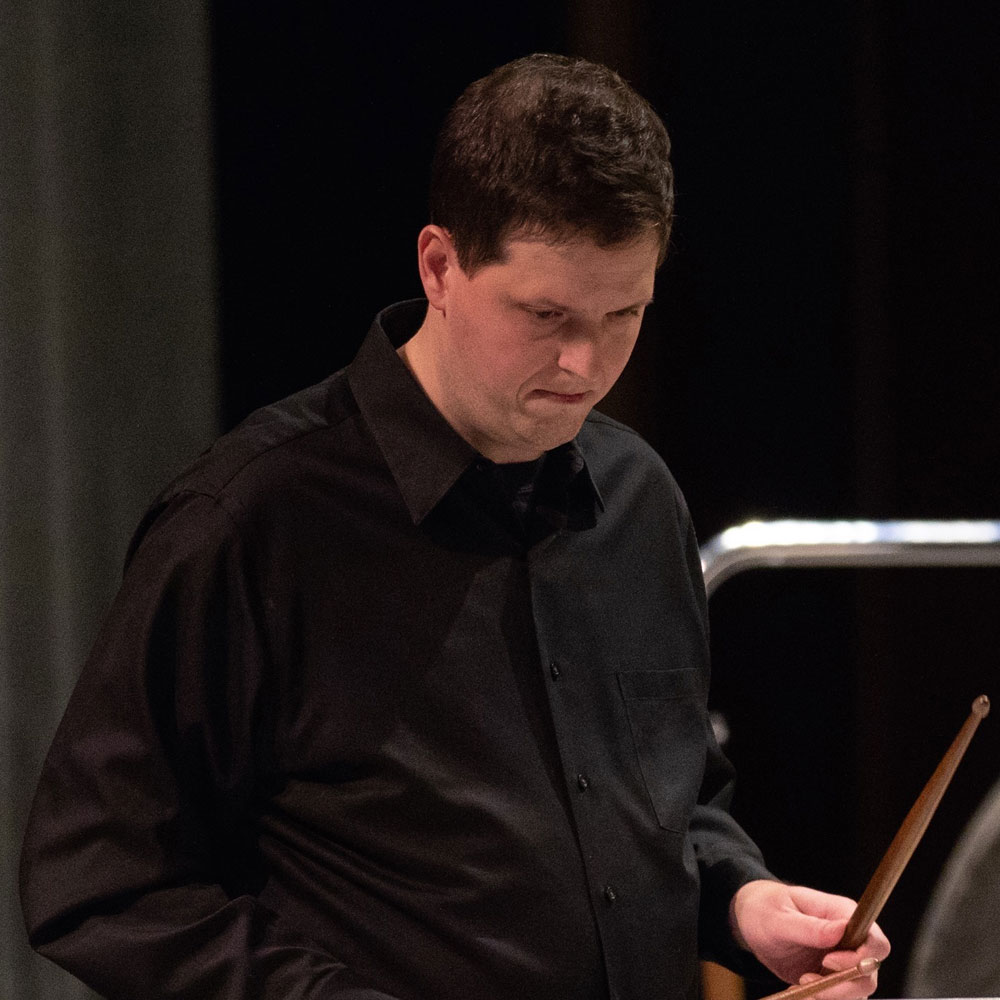
Percussionist
Ralph Sorrentino is the Director of Percussion Studies at West Chester University, where he teaches applied percussion and directs the West Chester University Percussion Ensemble. Sorrentino also serves as Principal Percussionist with the Opera Philadelphia Orchestra and Section Percussionist with the Pennsylvania Ballet Orchestra. Sorrentino’s work with Opera Philadelphia includes critically acclaimed performances at Philadelphia’s historic Academy of Music, the Kimmel Center for the Performing Arts, and Harlem’s world-famous Apollo Theater. Sorrentino was the principal percussionist for Opera Philadelphia’s April 2016 New York premiere performances of Charlie Parker’s YARDBIRD, which marked the first time that opera was performed on the Apollo Theater stage.
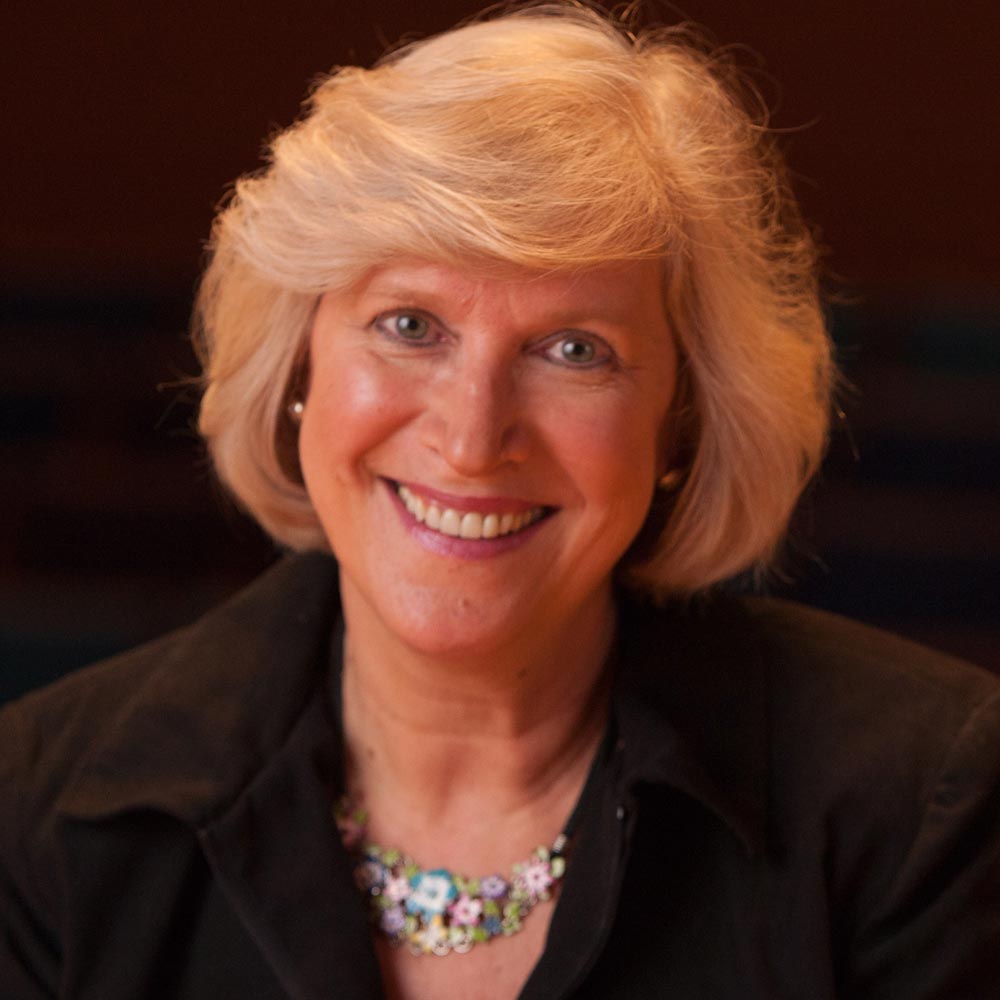
Pianist
A native of Niagara Falls, Canada, Jane Solose leads an active career as a featured concerto soloist, solo recitalist, chamber musician, duo pianist and master teacher that has taken her to Korea, Japan, Austria, Bulgaria, Hungary, Serbia, Russia, Argentina, Canada, and around the United States. She is listed on the distinguished international roster of Steinway Artists. Eroica Classical Recordings released three of her albums, and her articles have been published in the journals 20th Century Music and Clavier. Duo Solose, a duo-piano collaboration with her sister Kathleen, perform to enthusiastic ovations. Solose received her DMA degree from the Eastman School of Music, where she was awarded their prestigious Performer's Certificate and was David Burge's first teaching assistant. She is currently Professor of Piano at the Conservatory of Music and Dance, University of Missouri-Kansas City.
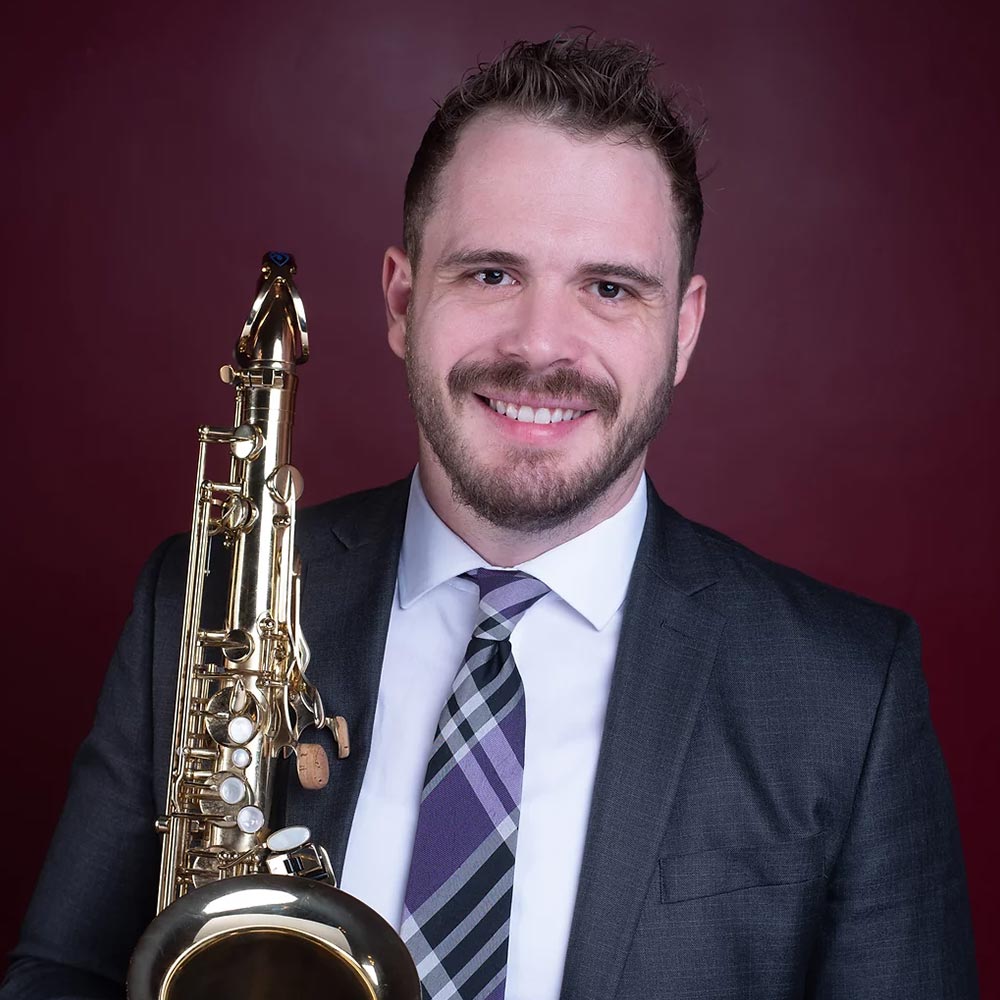
Saxophonist
Jeff Siegfried is an artist who takes joy in the wild diversity of the saxophone’s flexible voice. From classical to jazz to klezmer to free improvisation, there are few styles or settings where he doesn’t feel comfortable. He combines a “rich, vibrant tone” (South Florida Classical Review) with “beautiful and delicate playing” (Michael Tilson Thomas) to deliver “showstopper performances” (Peninsula Reviews).
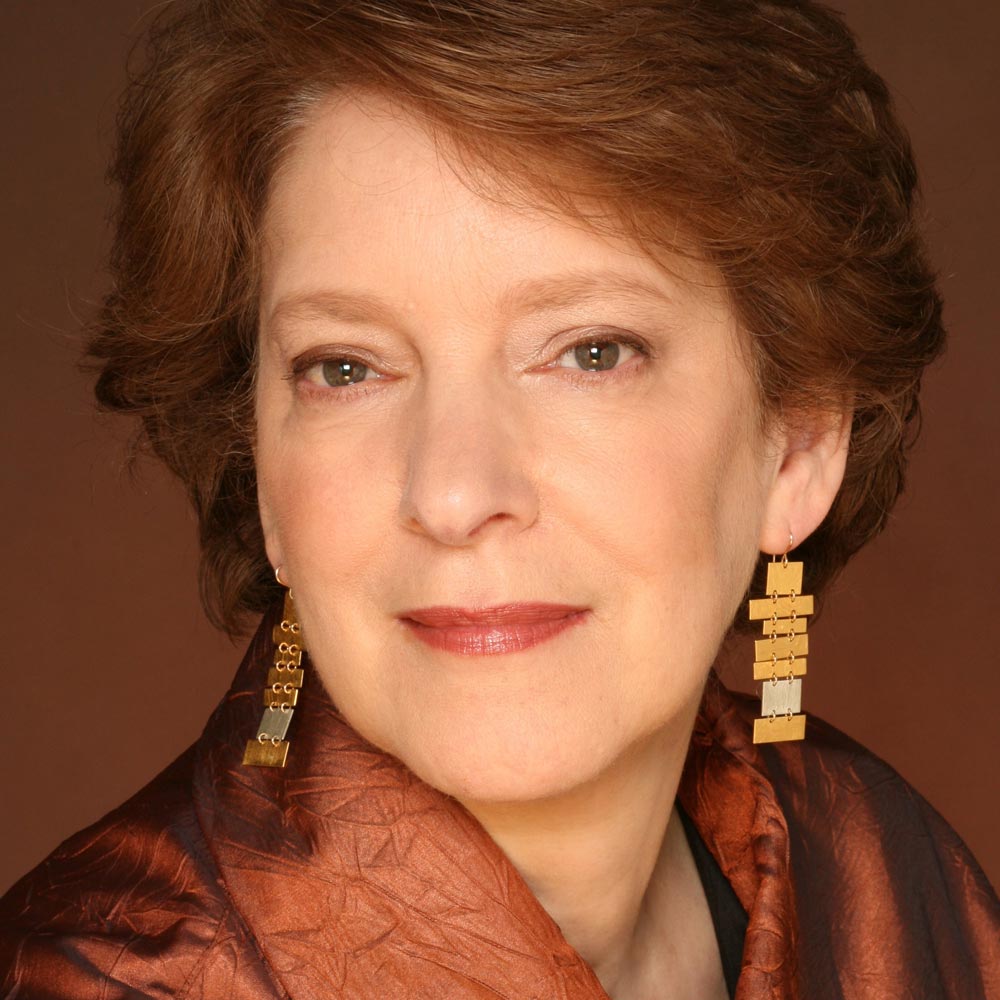
Composer
Called a true sound artist, who ". . .applies sound to the airwaves the same way a painter applies colors to canvas," (Fanfare), Judith Shatin is a composer whose music is inspired by a keen interest in literature and the visuals arts, and by the sounding world. She has been commissioned by organizations including the Barlow Endowment and Fromm Foundation, the Library of Congress and many more. Ensembles such as the American Composers Orchestra, Ensemble Berlin PianoPercussion, the Kronos Quartet and the National, Illinois and Richmond Symphonies have also commissioned her work.
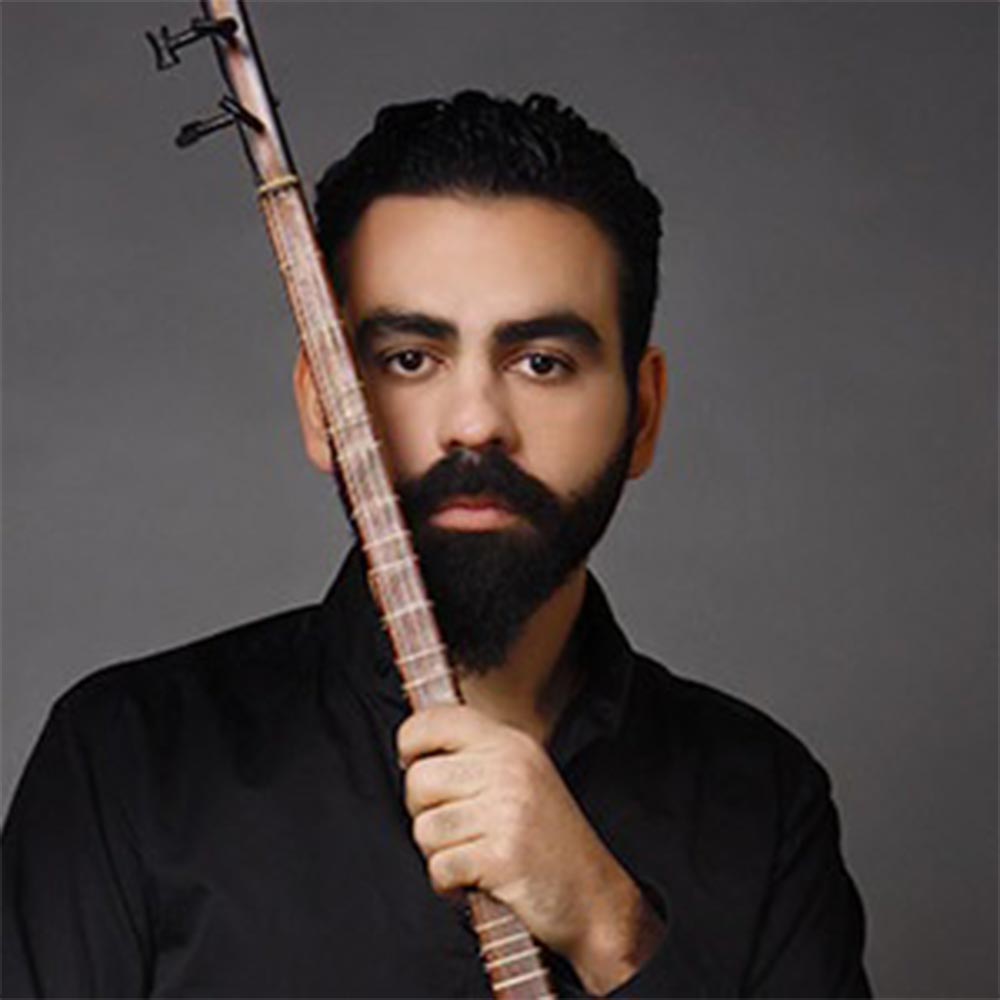
Composer, Setār
Fared Shafinury is an internationally acclaimed artist, Persian setârist, composer, vocalist, activist, and educator. Beyond the singer songwriter, he is a disciple of the many prominent masters of Radif, setâr, and âvâz (Lotfi, Shâri, Zolghadr, and Mozafari). Shafinury has dedicated his life to both the preservation and evolution of classical Persian music.
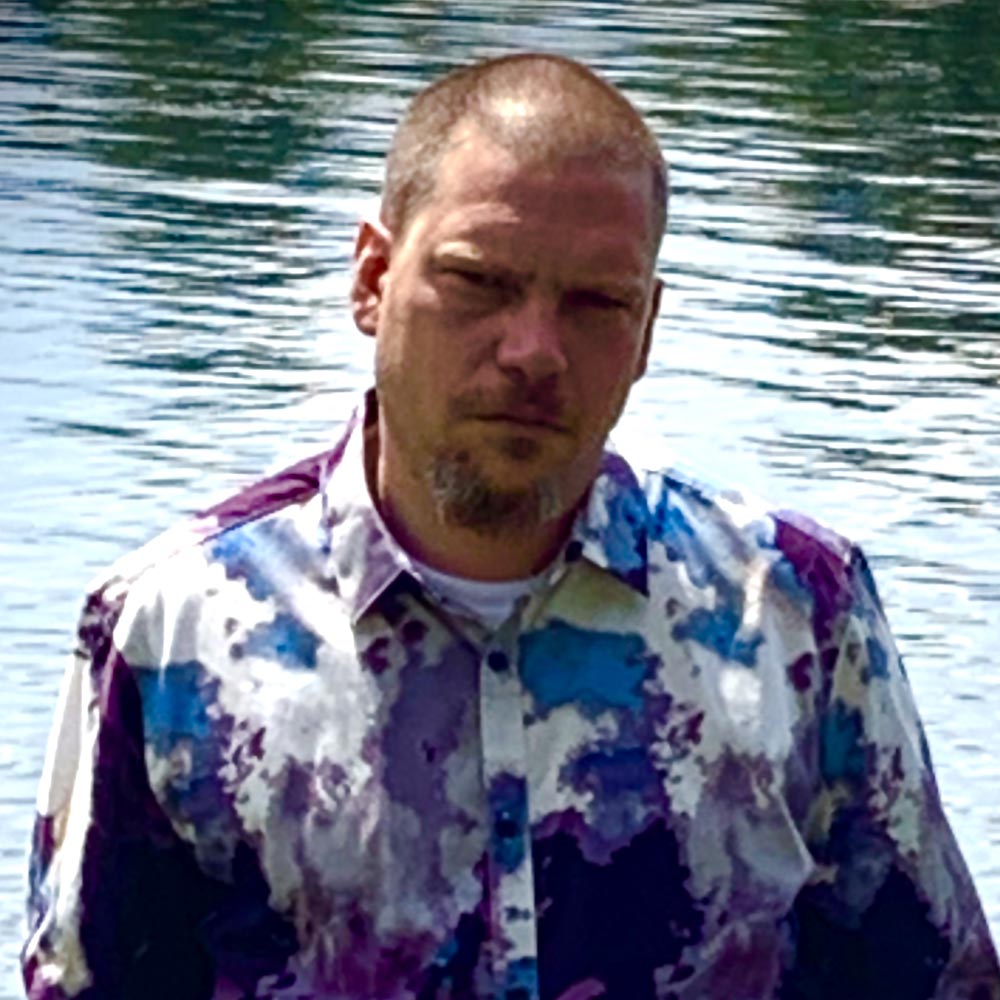
Composer
Barry Seroff was born in Flushing, Queens on July 4th 1978. He earned his Bachelorís Degree at the Aaron Copland School of Music where he studied theory with Joe Strauss, composition with Paul Alan Levi, Jeff Nichols, and Bruce Saylor, and musicology with Henry Burnett. At the same time outside of school, he studied classical flute with Michael Laderman and Petina Cole, modern and traditional jazz guitar with Joe Giglio and Bern Nix, and shakuhachi with Ronnie Nyogetsu Seldin.
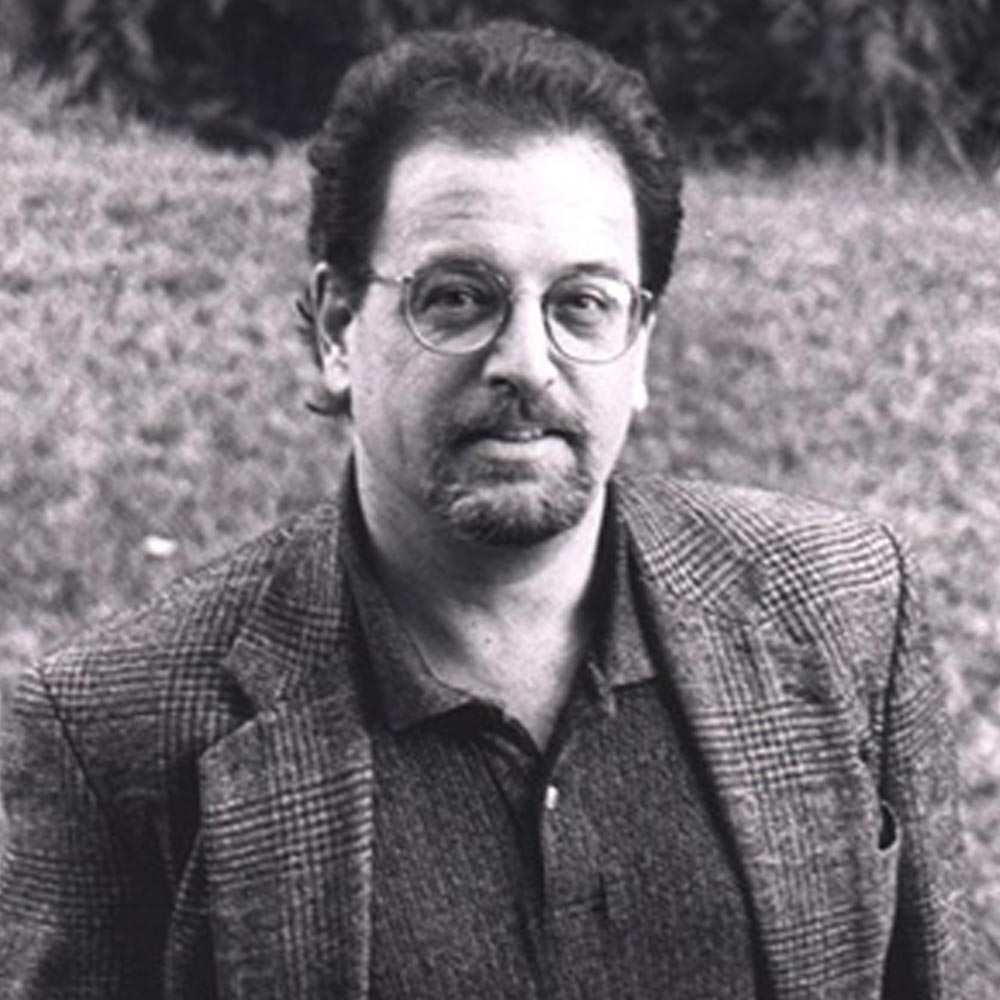
Composer
The music of Phillip Schroeder (b. 1956, Rancho Cordova CA) for soloists, chamber ensembles, live electronics, orchestra, band, and choir has been described by critics as "wonderfully evocative," "ethereal," "rich in subtle detail," and "full of elegant nuance." He has appeared as a guest composer, lecturer, and performer at venues throughout the United States and Europe and has been very active and dedicated New Music advocate as performer, producer, and festival/conference host.
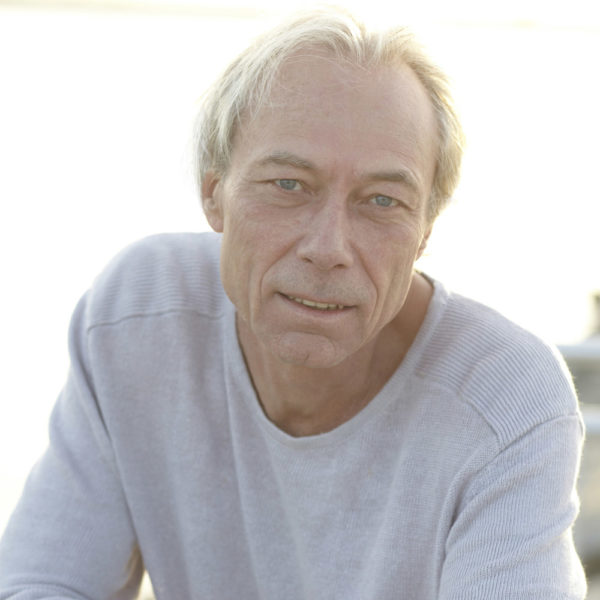
Composer
Pierre, a French native, came to music as a child, studying classical piano and transcribing themes from movie composers on the family’s piano. Emotions are in the center of his work, and reviewers have often noted cinematic elements in his music, while describing “an imaginative musical craftsman at work, capable of evoking real wonder, mystery, reverence, and celebration.”
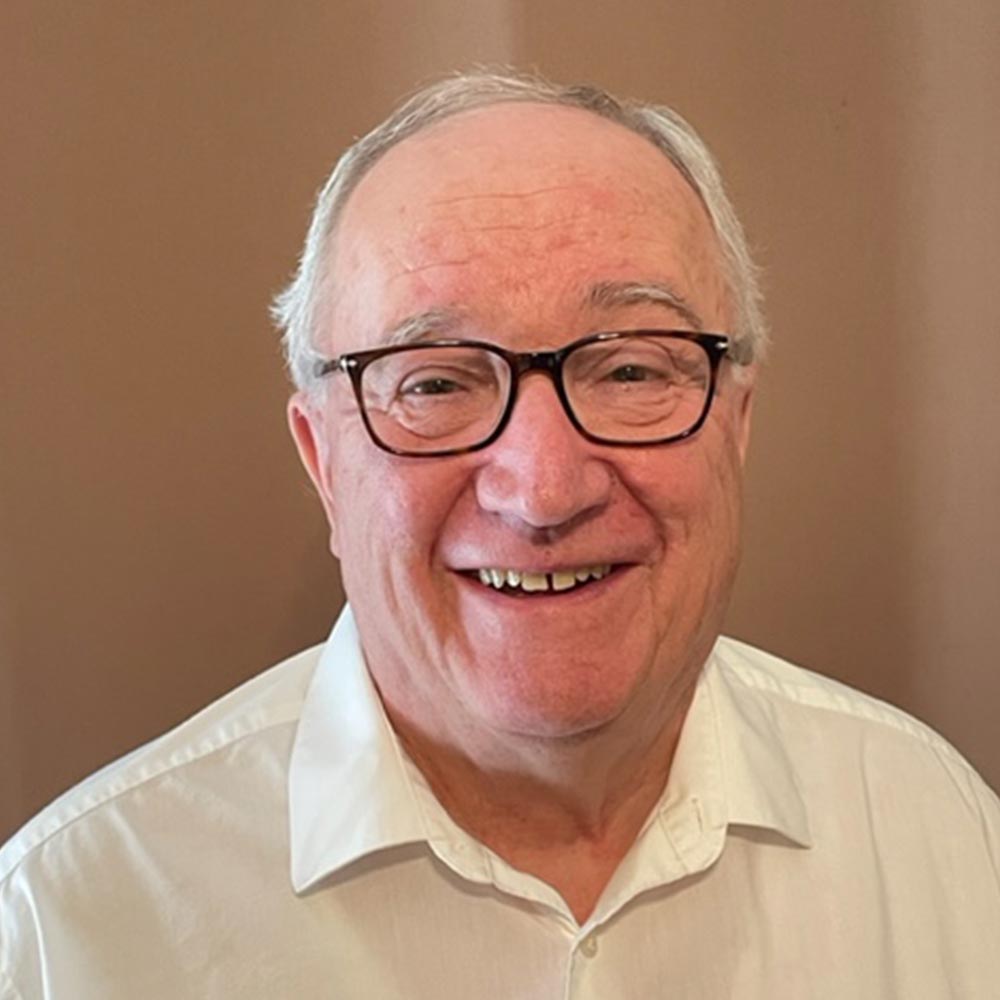
Composer
Alan Schmitz (b. 1950) is Emeritus Professor of Theory and Composition at the University of Northern Iowa’s School of Music. He earned bachelor and master of music degrees from the University of New Mexico and a Ph.D. in music theory/composition from Rutgers University. Schmitz has received awards, commissions, and grants for composition from several agencies including the Alaska Council of the Arts, the Iowa Arts Council, the University of Northern Iowa, and the Lila Wallace/Reader’s Digest Foundation. His music appears on numerous Ravello Records releases, including NINETIES TIMEFLOW (chamber pieces), LYRIC IMAGES (guitar works performed by Todd Seelye), and ACE COMPOSERS, 21st Century Music by Alan, Christopher, and Eric Schmitz. Schmitz retired from the University of Northern Iowa in June, 2017, after 23 years as Associate Director of the School of Music and now resides in the Houston TX area.
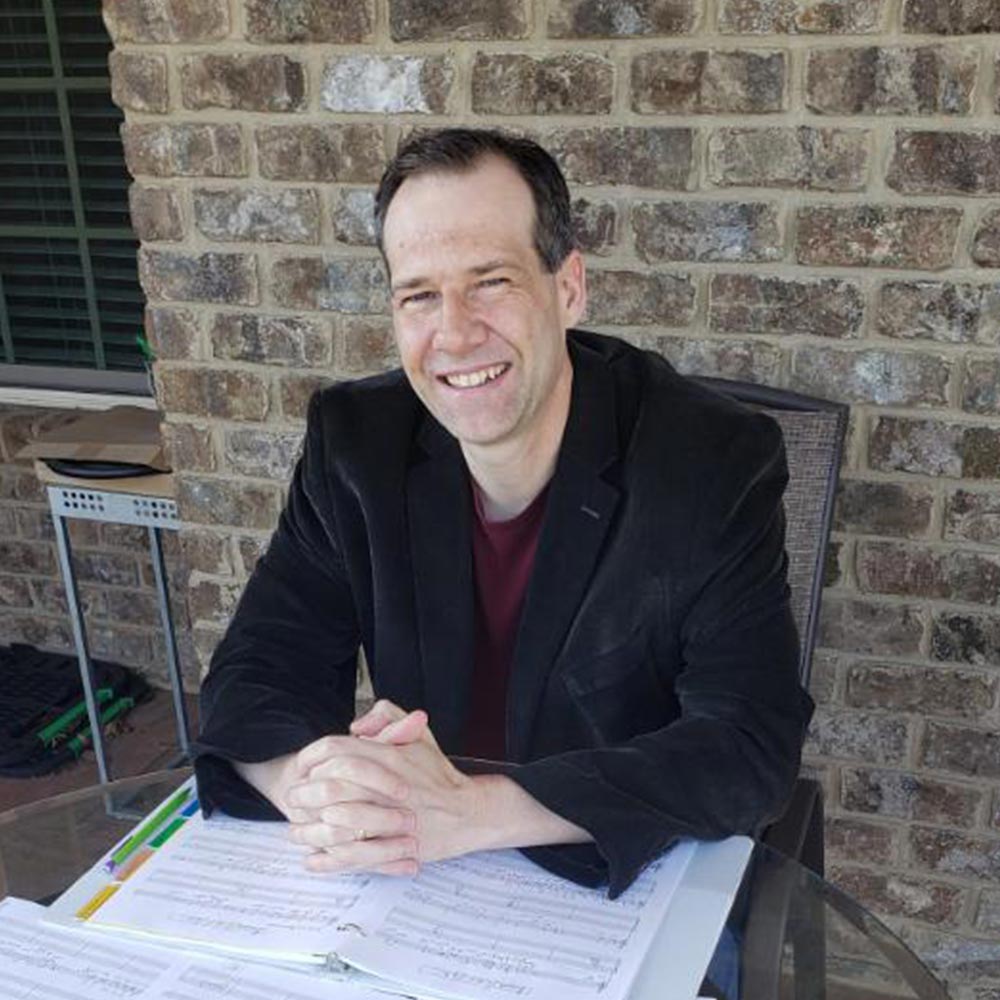
Composer
Christopher Alan Schmitz (b. 1972) is Professor of Theory and Composition at the Townsend School of Music, Mercer University. His solo, chamber, and ensemble works are performed internationally and recorded on Navona Records and Beauport Classical. Scores are published and distributed by C. Alan Publications, Cimarron Press, Opus Music Publishers, and Cherry Classics.
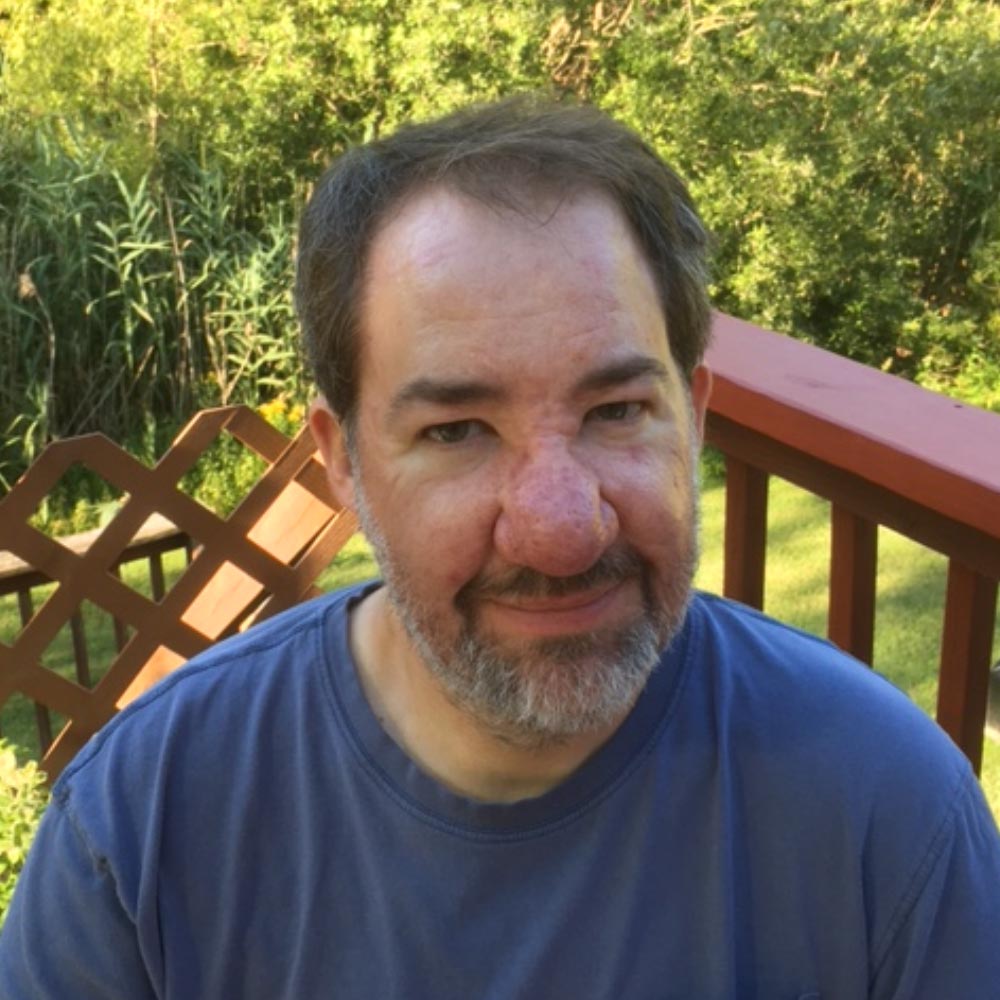
Composer
Eric Schmitz (b. 1977) is Professor of Jazz Studies at SUNY Oswego, where he directs the Oswego State Jazz Ensemble and Latin Jazz Ensemble, co-leads and performs with the Oswego Jazz Project (faculty jazz quartet), and teaches jazz and rock history, improvisation, jazz arranging, and music theory and composition.
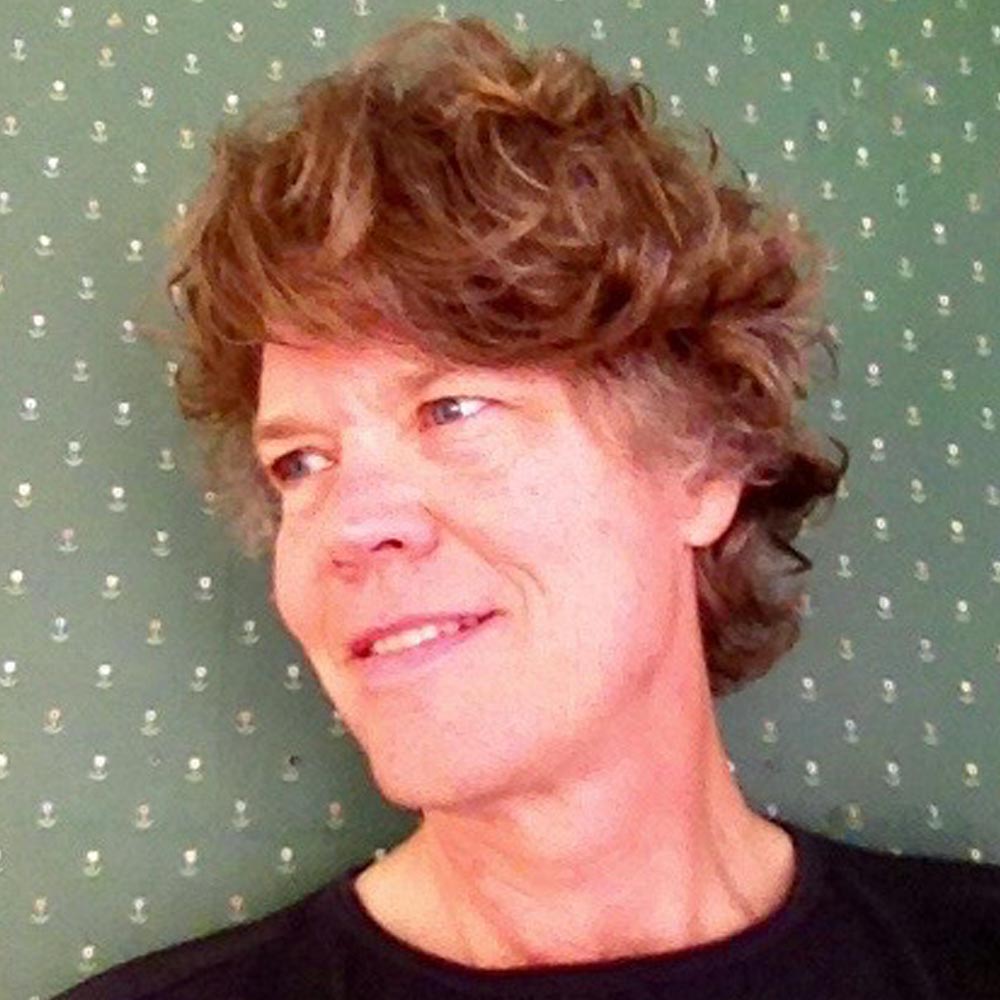
Composer
Jim Schliestett studied French horn with Ralph Pyle of the LA Philharmonic as a youth, recalling as a highlight performing with orchestra Mozart's Concerto #3. He studied electronic music and composition with Gordon Mumma and David Cope while at UC Santa Cruz in the 70s, and the seeds were planted for an abiding interest in Eastern European contemporary classical music.
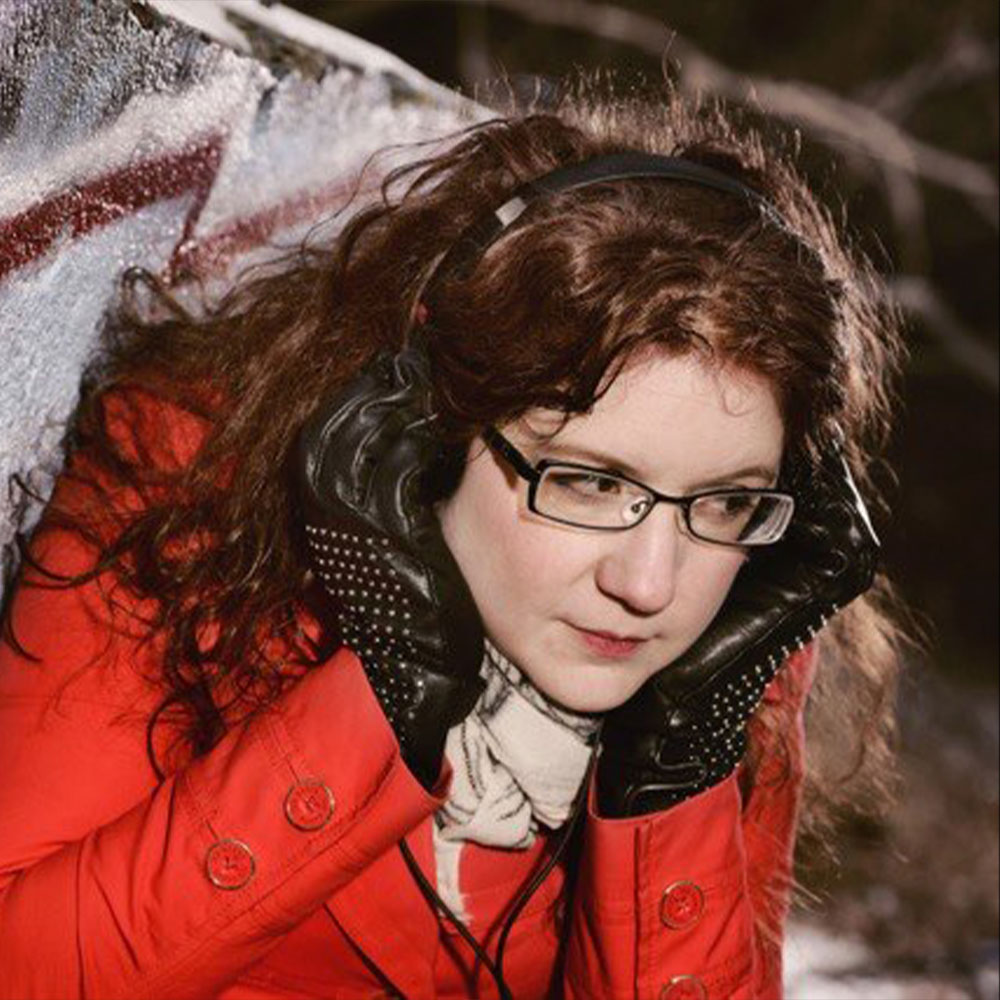
Composer
Margaret Anne Schedel is a composer and cellist specializing in the creation and performance of ferociously interactive media whose works have been performed throughout the United States and abroad. While working towards a DMA in music composition at the University of Cincinnati College Conservatory of Music, her interactive multimedia opera, A King Listens, premiered at the Cincinnati Contemporary Arts Center and was profiled by apple.com. She holds a certificate in Deep Listening with Pauline Oliveros and has studied composition with Mara Helmuth, Cort Lippe and McGregor Boyle. She is a joint author of Cambridge Press’s Electronic Music and recently edited an issue of Organised Sound on the aesthetics of sonification. Her work has been supported by the Presser Foundation, Centro Mexicano para la Música y les Artes Sonoras, and Meet the Composer. She has been commissioned by the Princeton Laptop Orchestra the percussion ensemble Ictus, and the reACT duo.
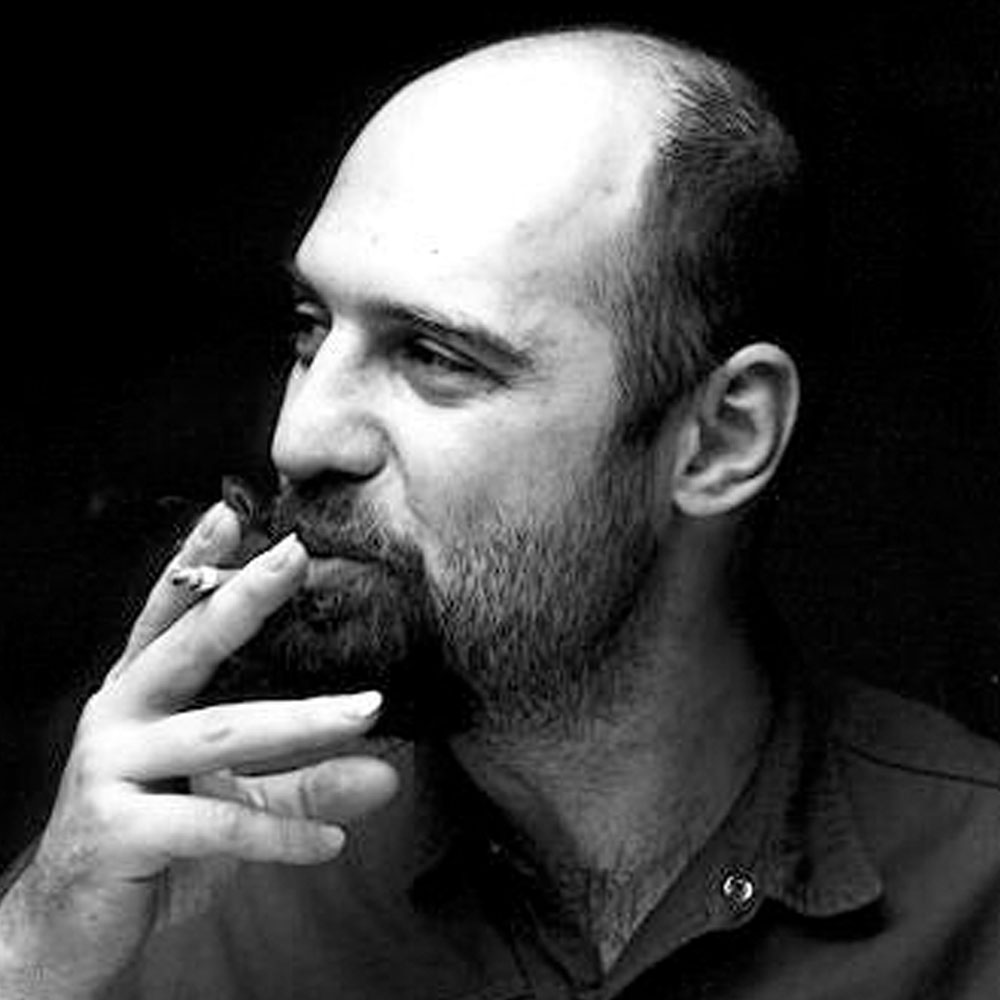
Composer
Zoran Šćekić received his BFA in jazz guitar at University of Music and Performing Arts Graz (Austria). As a recipient of the 1998 Bruxelles Stipendium, Šćekić went to Helsinki to continue post-graduate studies in composition and arrangement, and to participate in the International Summit of Music Academy as a representative of the Sibelius Music Academia. His works as composer, arranger, and guitarist in the field of written and improvised music is available on the unofficial six-disc studio and live album compilation Selected Works in Equal Temperament. These recordings are the results of playing jazz guitar in duo, trio and quartet settings; collaborating with light and stage designers, choreographers, and visual artists in the creation of theater and film music; participating in jazz and free jazz festivals; and writing a number of works for big band, chamber orchestra, and large orchestra.
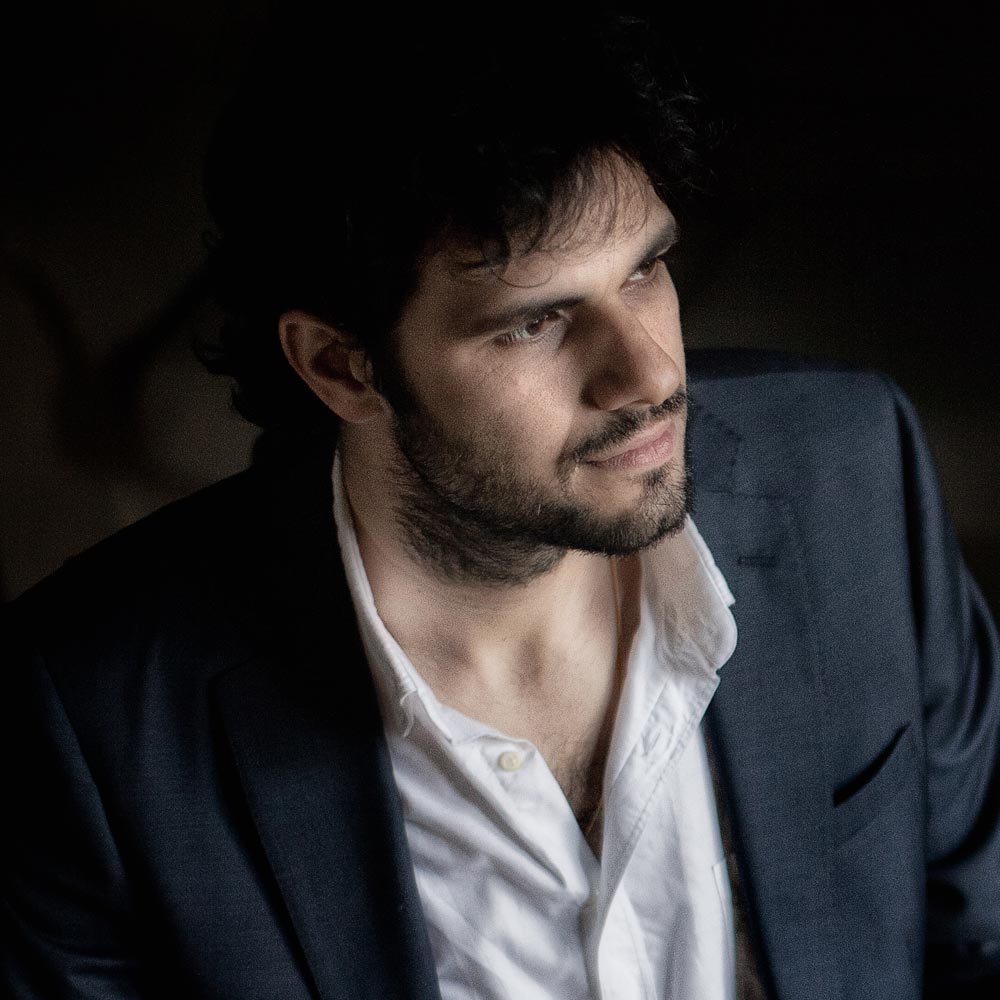
Composer
Born in Lisbon, November 1984. After completing a degree in economics in the Universidade Nova de Lisboa (2006), he began in 2007 a degree in classical guitar in the Escola Superior de Música de Lisboa with Piñero Nagy, and he completed his graduation in 2010 in the Sevilleʼs Conservatorio Superior under the guidance of Francisco Sanchez Bernier. In 2015 André fi nished his degree in composition in the E.S.M.L. and had António Pinho Vargas, Carlos Caires, and Luís Tinoco as his teachers.
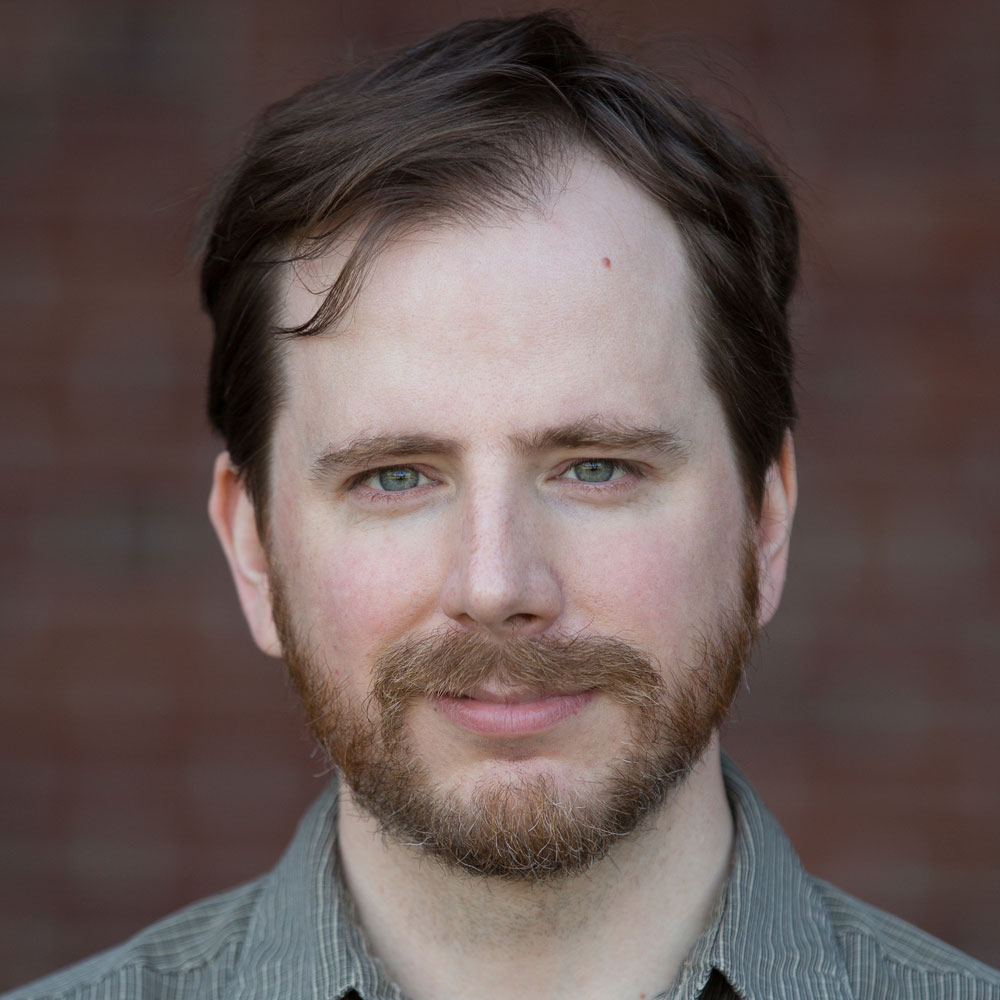
Composer
Dr. Phil Salathé spent his formative musical years playing jazz trumpet, making homemade musique concrète on an old tape deck, and getting in trouble for surreptitiously composing in chemistry class. His music has been performed in the United States, Canada, South America, Europe, and Asia. It ranges widely in scale and scope, from multi-movement orchestral works to hand-programmed "chiptunes" for independent video game publishers.
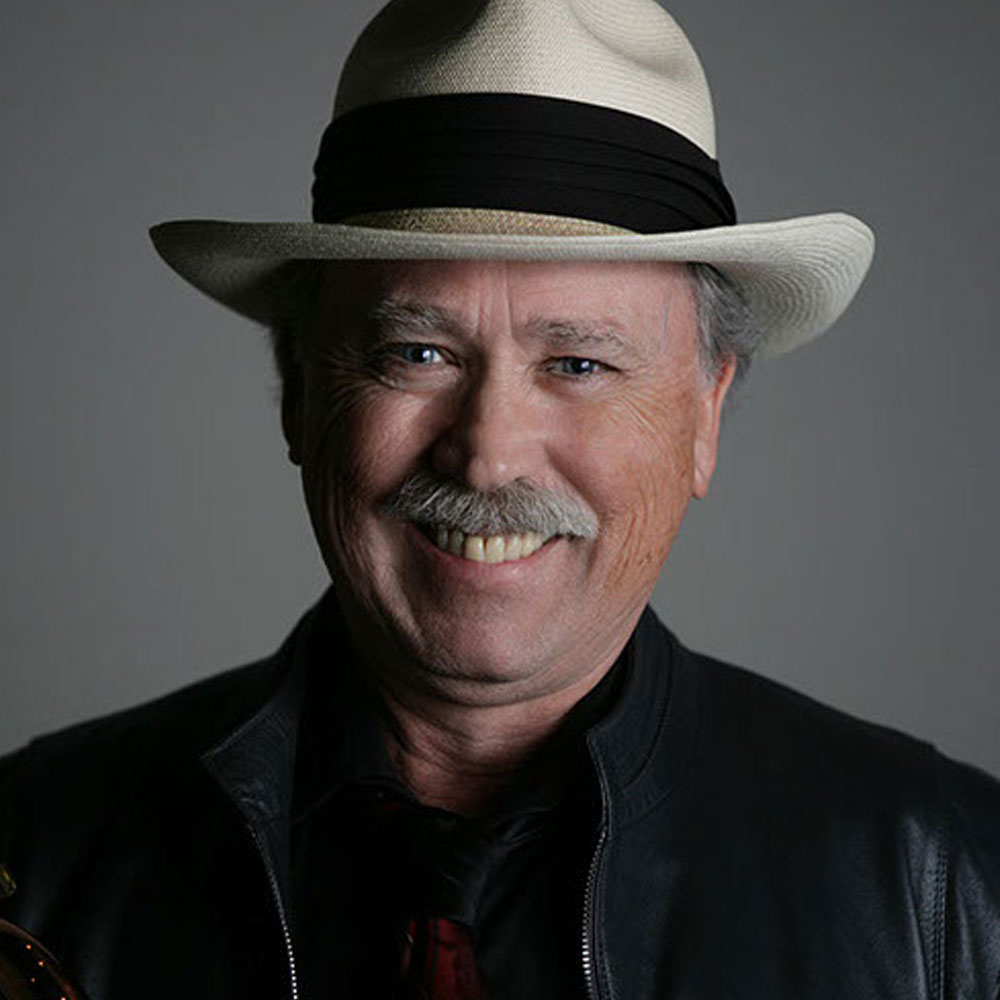
Trumpeter
Stephen Ruppenthal San Francisco Bay Area Composer/performer Stephen Ruppenthal is co-Principal trumpet and Contemporary Music Advisor for Redwood Symphony. He studied trumpet with Chris Bogios of the San Francisco Symphony and Opera. Ruppenthal holds a Performance Degree and a Master of Arts Degree in Contemporary Musicology from San Jose State University, studying composition and electro-acoustics with Allen Strange and ethnomusicology with Lou Harrison.
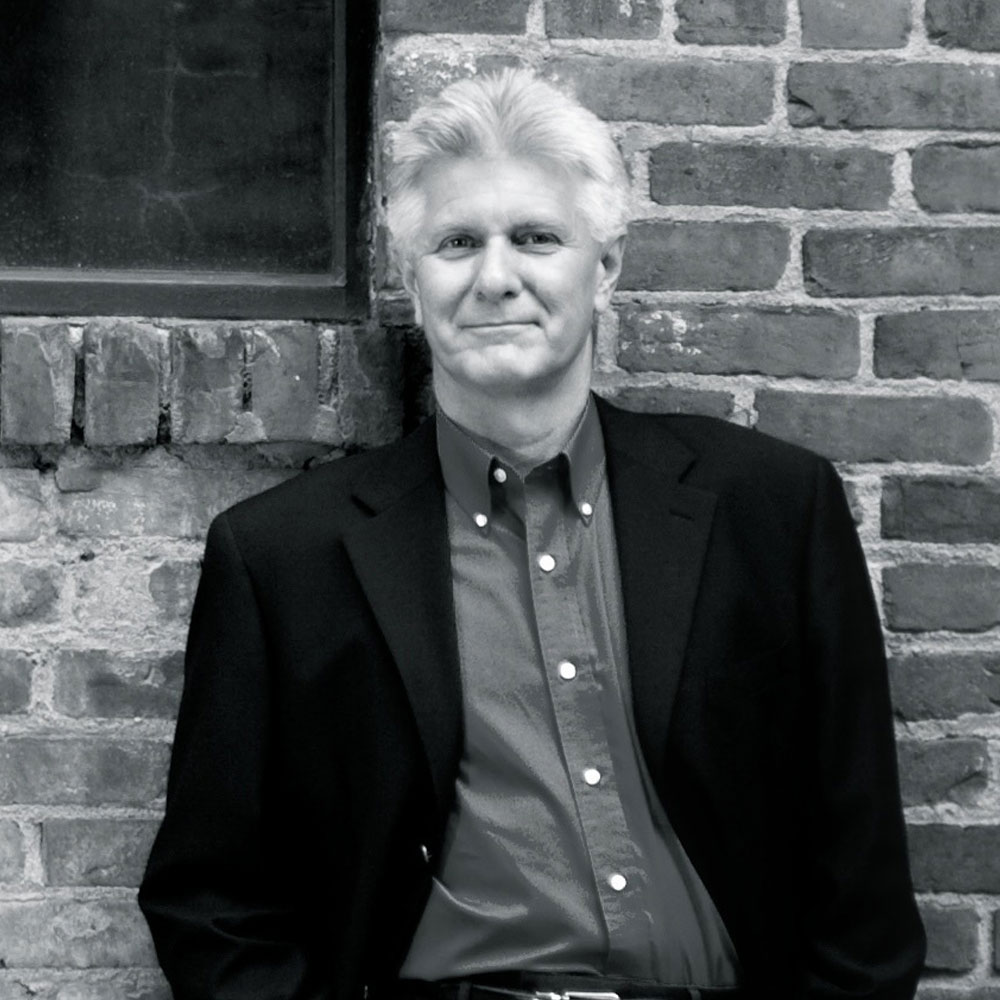
Composer
Born in Moss Point, Mississippi, on July 9, 1953, Steve Rouse has composed and performed music since childhood. Growing up on the Gulf Coast of Mississippi, his musical experiences and influences were wildly diverse. In addition to hearing the varieties of indigenous folk music of the area, his performing experiences included choirs, R&B, jazz, and rock bands (keyboards and woodwinds), and symphonic bands and orchestras (bassoon). In addition to formal training on piano, bassoon, and saxophone, he taught himself rudimentary to intermediate skills on many other instruments.
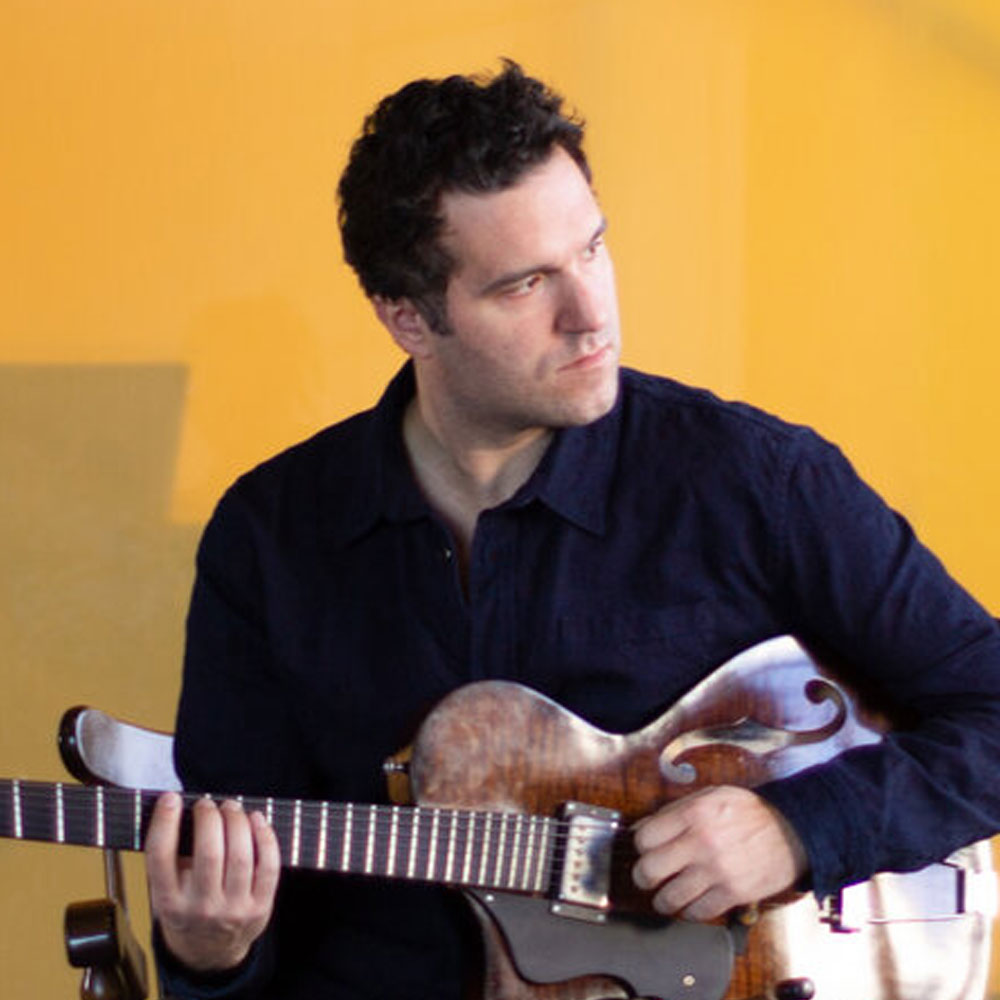
Composer
David William Ross is a versatile musician with an embracing approach. He regularly performs classical repertoire but also works in jazz and other improvisatory styles. An advocate of new music, he has worked closely with composers and has recorded and premiered many works by composers from all over the world. Ross frequently collaborates with dancers, choreographers, and multimedia artists in creating original works. A producer and engineer, he has recorded and produced many projects, including his own.
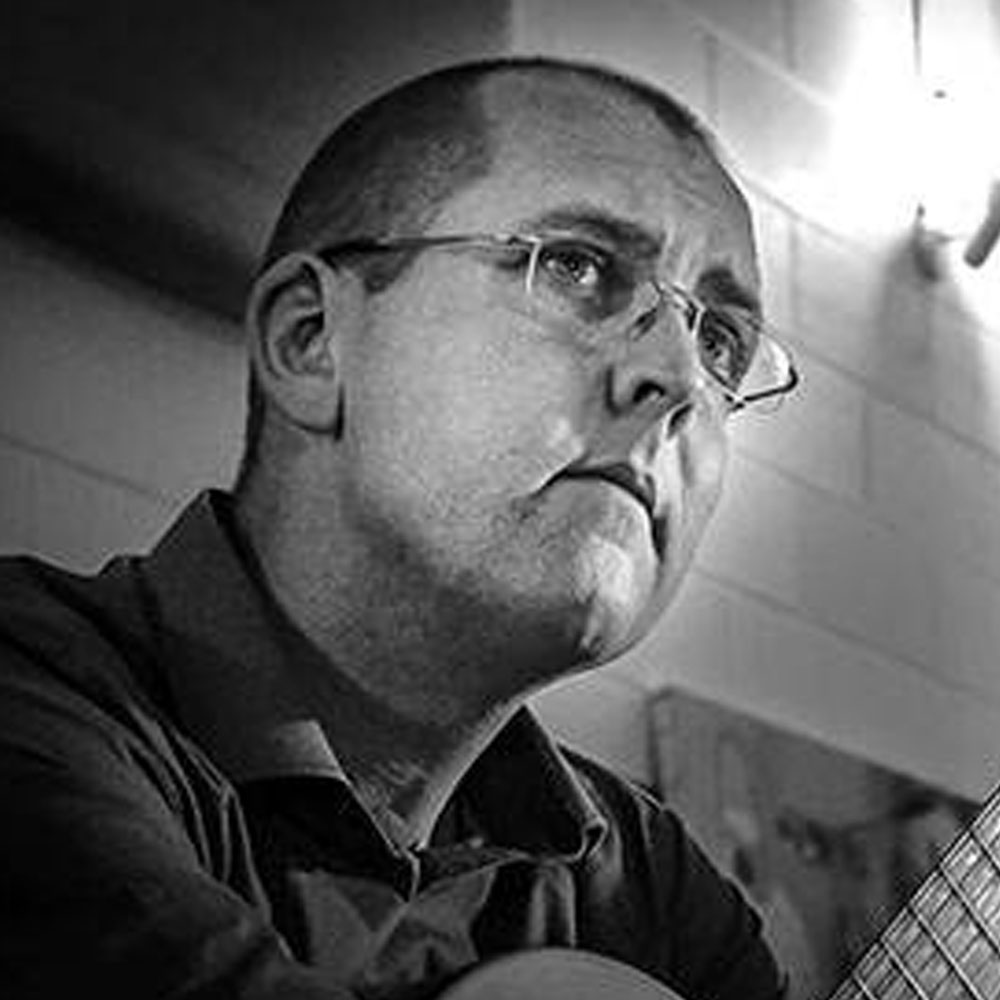
Composer
Campbell Ross is a guitarist, composer and teacher who lives in Brisbane, Australia. He developed a passion for the guitar at an early age and almost immediately began writing for the instrument. Raised in New Zealand, Campbell won the Christchurch Guitar Competition before embarking on tertiary study at the Wellington Conservatorium of Music under the tutelage of Matthew Marshall.
Artists
©2024 Ravello Records. All rights reserved. Website by PARMA Recordings. | Privacy Policy
